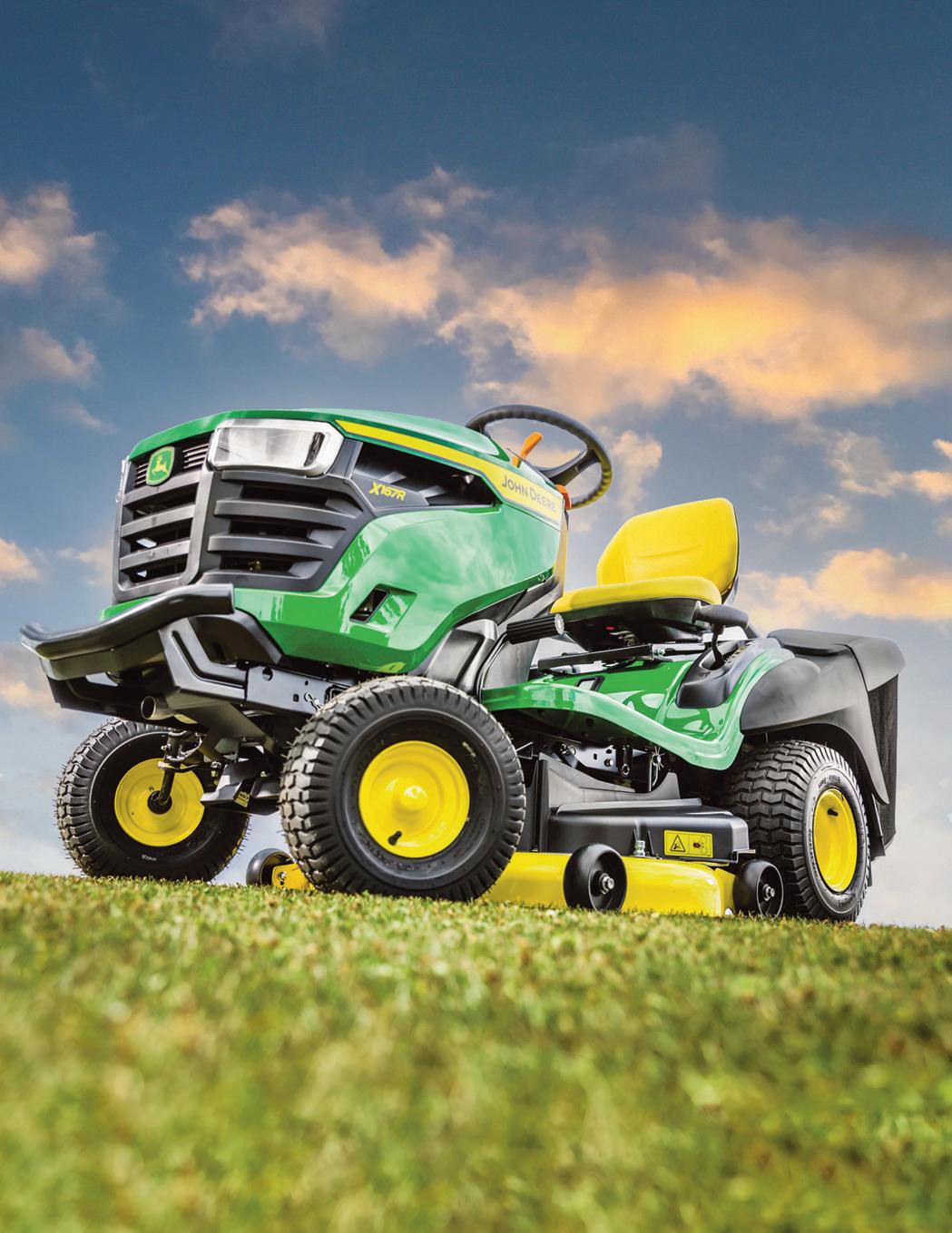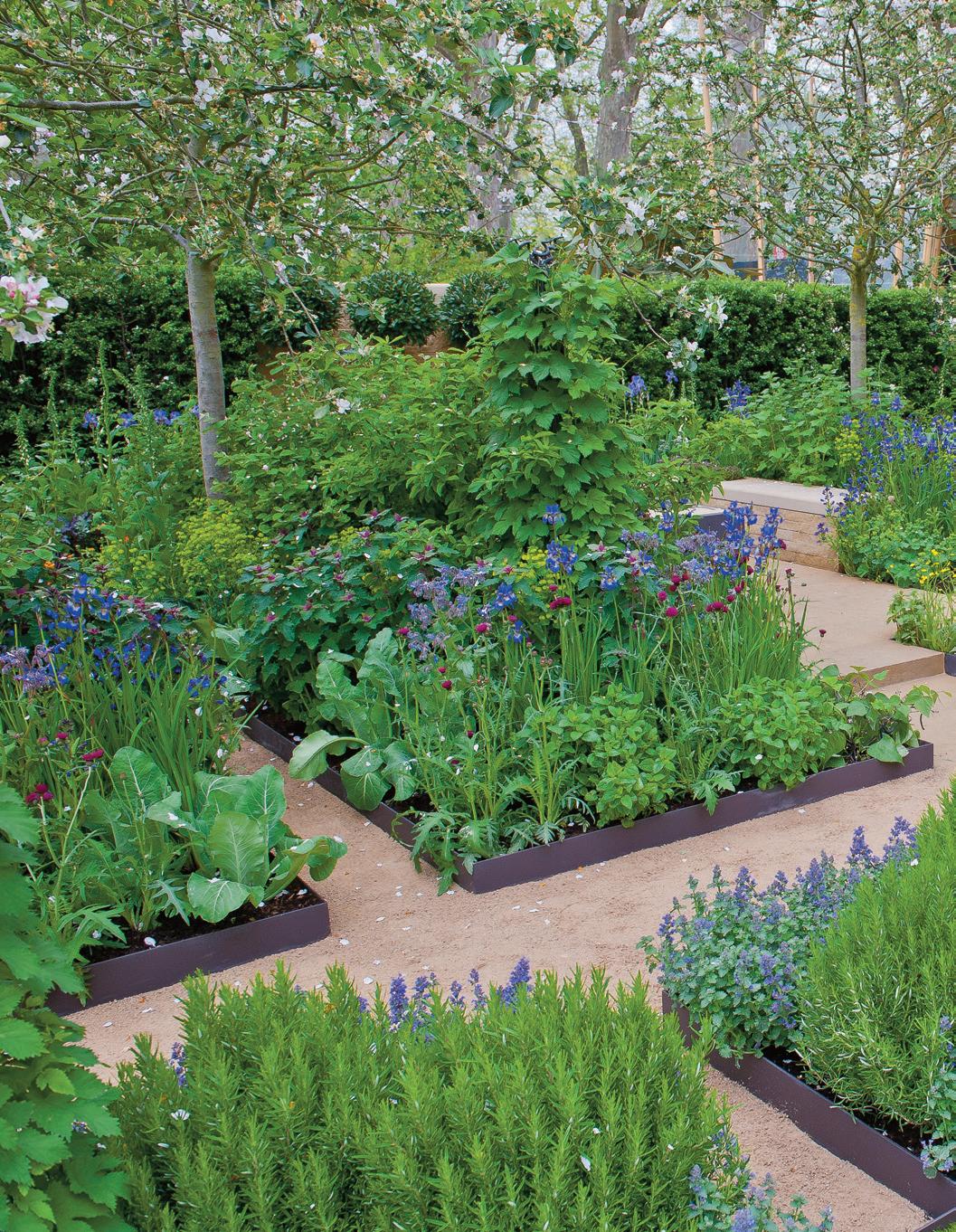
13 minute read
GARDENING Kitchen gardening
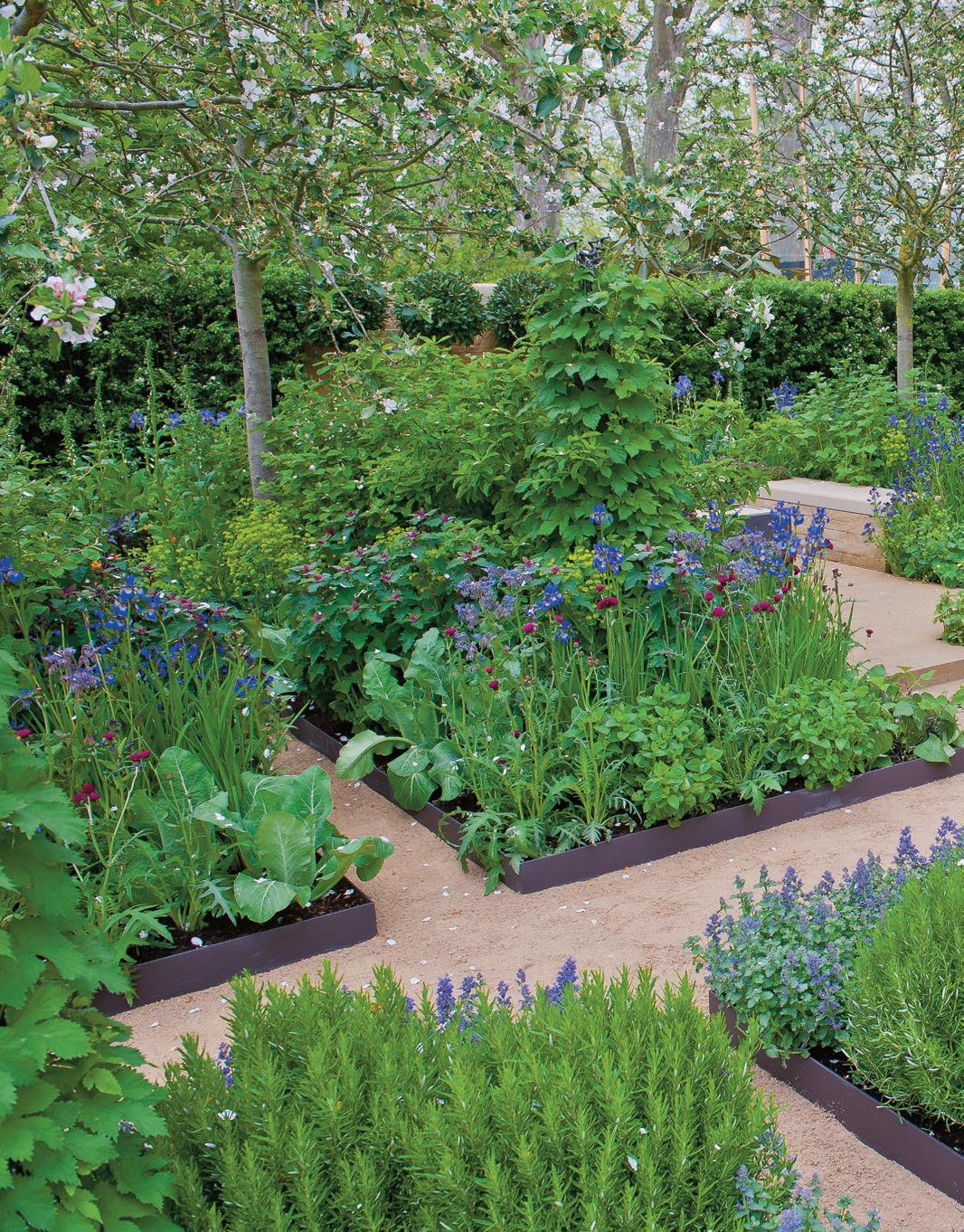
IN THE KITCHEN GARDEN
Advertisement
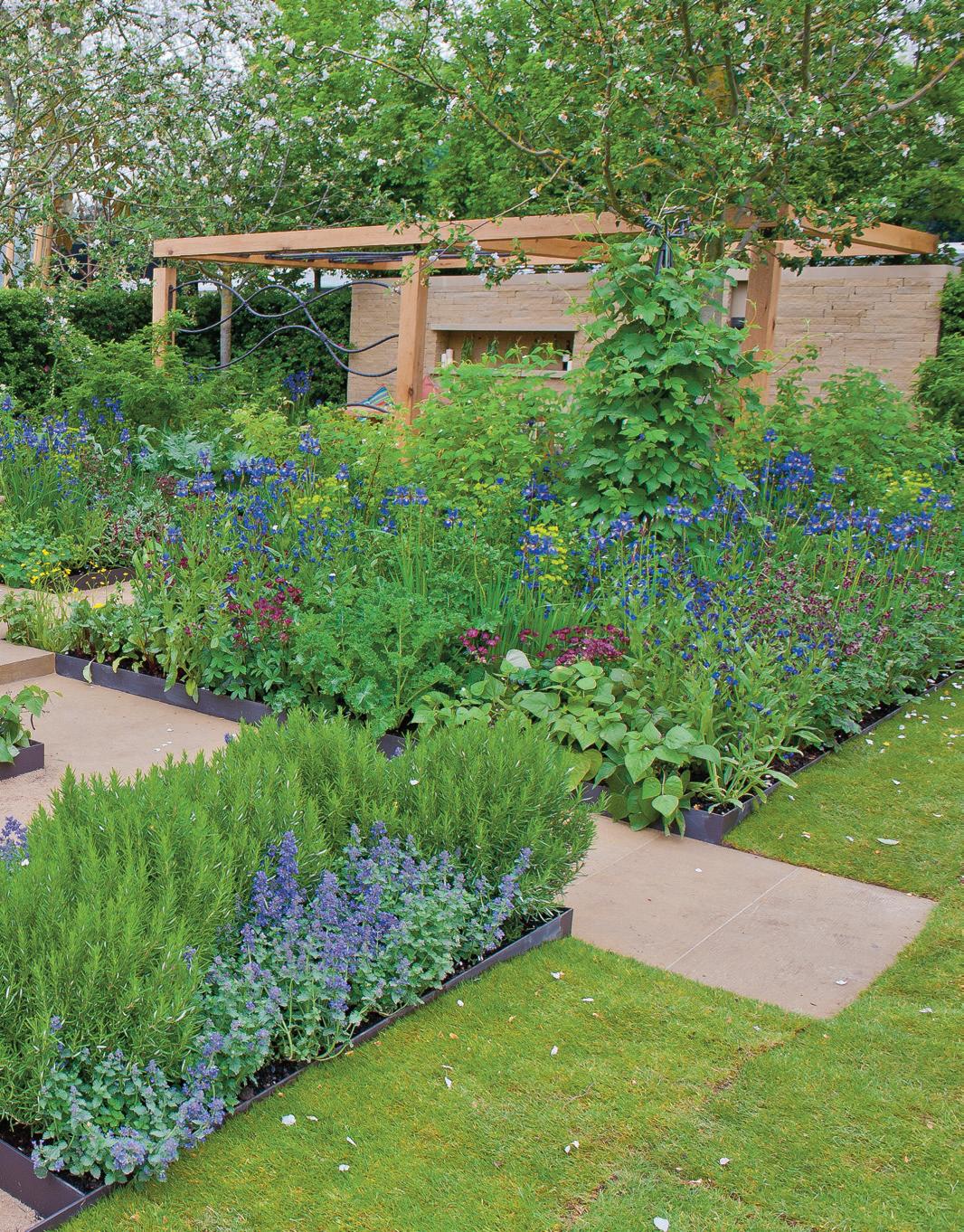
This month is a great opportunity to get your growing going and create beautiful ingredients for use in your summer dishes. You’ll enjoy great food, fresh air and gain a sense of satisfaction, but if you need to advice to get started Stamford based Adam Frost has all the help you need at his kitchen school...

Words: Rob Davis.
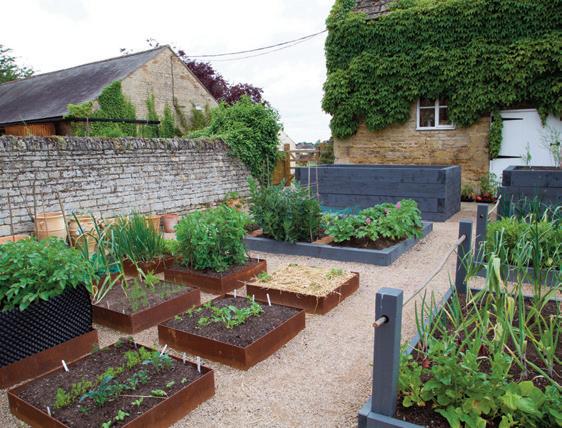
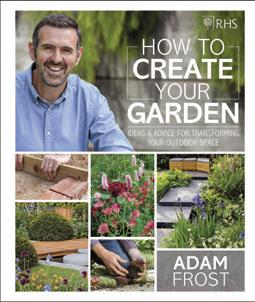
Above: RHS Ambassador Adam is the author of How to Create Your Garden: Ideas and Advice for Transforming your Outdoor Space (hardback, 256 pages) available from good bookshops for £20, or see adamfrost.co.uk. >> Have you ever stopped to consider whether the future will be better? For every decade since the mid-20th century, futurists gazed into their crystal balls and predicted that we’d be living on the moon. We’d wear tin foil, they said. We’d have flying cars, they said. We’d be popping nutritionally complete food pills eliminating the need to shop, cook and eat whilst consigning both starvation and food wastage to history across the globe. It hasn’t happened. Instead some families even in this country struggle to feed themselves whilst others throw perfectly good food away from their larders, cupboards and refrigerators. Meanwhile our diets are poorer than ever, food intolerances are rife, obesity levels have reached unprecedented levels and our food arrives via increasingly complicated supply chains and everything we eat is the subject of industrialised processing. Supermarkets and Groceries 33p in every pound spent on food in the UK spent in Tesco, which has a 27.8% market share of all supermarkets. Its three main competitors, accounting for a further 15.8% (Sainsbury’s), 15.3% (Asda) and 10.4% (Morrisons) share of the supermarket sector; just four companies controlling nearly 70% of all our £28bn food and grocery supermarket shopping. Seasonality no longer applies; we can eat strawberries in January and game in June. The farming industry has had to resort to industrialised processes to keep us fed, whilst food producers have to incorporate preservatives, emulsifiers, antioxidants, bulking agents and flavour enhancers. A reward for convenience? Of course, being able to simply pick groceries up from the supermarket means we now have plenty of spare time as a society. But that’s time which is increasingly spent in a sedentary state; in front of TV screens, smartphones and tablets or working longer hours in front of your computer screen at work. In short, our diets are worse than ever, our activity levels are lower than ever and our stress levels are through the roof. If only there were a way to address all three issues.
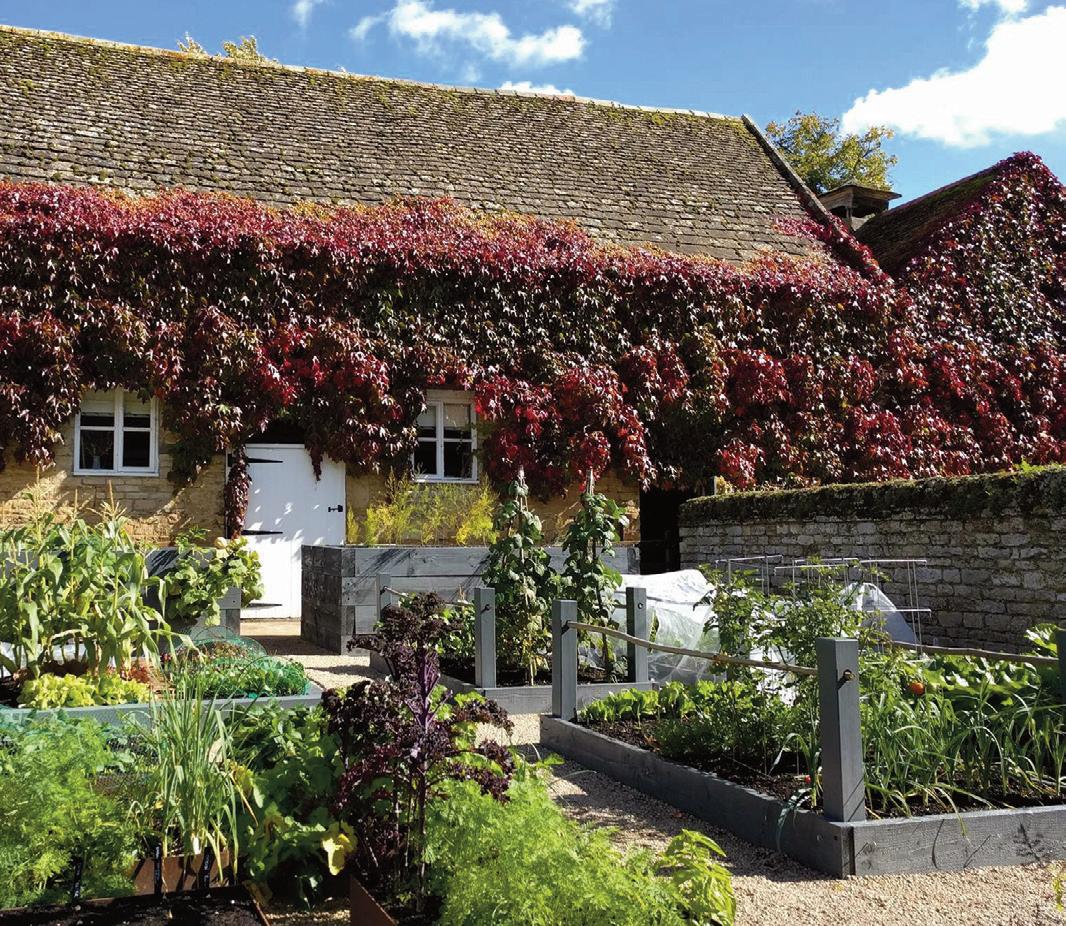
To enable us to eat healthily, get some fresh air, relax and enjoy achieving something more constructive.
We can think of nothing better to address all of the above than curating your own kitchen garden. To be fair, we’re perhaps overstating matters. There’s no single silver bullet to solve all of the above problems in one fell swoop. For a start we don’t all have the space, and large country homes no longer employ permanent staff – as was the case in years gone by – to tend a kitchen garden. Plus, we’re all time poorer by virtue of the increasing demands of our lifestyles.
A Happy Medium But there’s always a happy medium. Even if you can’t dedicate lots of space, time and energy to creating a full kitchen garden, there’s always a compromise to be achieved between growing some of your own food and enjoying the sense of achievement that brings. From herbs on a window sill or tomatoes in a pot or growbag, to a single raised bed, or a few fruit trees in a corner of your garden. So what are the questions you need answering if you’re considering getting your growing going? We sought the advice of Adam Frost, who moved to his Domesdayera stone Barnack patch five years ago but has lived and worked in the area since he moved here to work with Geoff Hamilton at Barnsdale Gardens when he was in his 20s.
Within the three-acre garden, which the broadcaster is gradually renovating, Adam has created a stunning kitchen garden. He has also been busy inspiring gardeners through The Adam Frost Garden School and now runs regular day or two daycourses on topics ranging from garden design, to getting the best from your borders to using space well in smaller gardens, and of course… gardening with edibles - fruit, veg and flowers. >>
>> He’s even offered online courses during the pandemic.
Adam’s Expertise... Our first advice is to dive in; just get started. Any initial degree of success will encourage you to go further; like salad leaves in a pot in spring leading to strawberries in the summer and so on. And there’s no ‘wrong’ time to start your efforts.
“April and May are wonderful months to start growing your own food,’ says Adam. ‘The hedges come alive, the birds start singing and you can get out in the veg garden and get stuck in.”
“It’s important to make sure the area you have put aside for growing is prepped, so free from weeds and dig in some compost, or well-rotted manure to put lots of goodness into the ground.”
“Weeding is one of those jobs all gardeners wish they didn’t have to do, but weeds appearing in spring is a good sign that the soil is warm enough to germinate seeds. In April, you can plant out chitted potatoes in the ground or in grow bags and many seeds can be sown straight into the ground as the risk of frosts has hopefully passed.”
Pots and Containers... Grow bags planted up in summer are ideal for germinating herbs and salads leaves, especially in a glasshouse or sunny spot. Grow cut-and-come-again crops for a supply of homegrown leaves all summer.
Pots and troughs are ideal too, but make sure they are deep enough for the veg you are growing. You don’t need any special soil for growing veg, just a good quality, peat-free compost. However, you can buy special fruit and veg soil which contains extra nutrients to help your crops to grow.
Crops like carrots, lettuce, peas and potatoes can be grown easily, as long as you take care not to let crops dry out in the summer and leave plenty of root space for crops. While fruit trees, vines and bushes can be planted in containers at any time of year, April and May are especially good months as there is plenty of time for the roots to establish.
“A really quick, easy and rewarding thing that I love to grow is a micro-herb. You sow them as normal and harvest when the first set of true leaves have grown - these appear after the first set of leaves, which are called the seed leaves. Peashoots, coriander, mustards and radishes are good ones to try. You won’t believe how much flavour they have and are great to add to salads or as a garnish!”
Making the most of space... Just a few beds and canny rotation of crops throughout the year are sufficient to create a productive kitchen garden that can keep feeding a family throughout the year.
Crop rotation also assists with soil fertility and weed control, and helps to control pests since most pests and diseases tend to attack specific plant families.
Rotating beds through the year to grow legumes, onions and root vegetables, then brassicas in the autumn and winter followed by potatoes in the spring will enable you to ensure there’s always a crop heading towards a harvest.
And so, to beds... “One of the benefits of raised beds is that, if you don’t have the best soil in your garden, you are making space to add new soil and organic matter, which will create a good basis to start growing. For me, they’re brilliant.” “In my kitchen garden, which I built in 2016, I’ve used half-sleepers, about 6in deep and 50mm wide to maximise space. Most importantly they’re made of pressure treated timber, which means they are less likely to rot and because they’re not as wide as fullwidth sleepers, there’s more space to plant.” “I’ve used rope too, so I can put net or fleece over the top. Two other advantages are that when you drag a hose pipe around the garden, corner posts prevent you dragging a hose over your crops, and when you’ve been
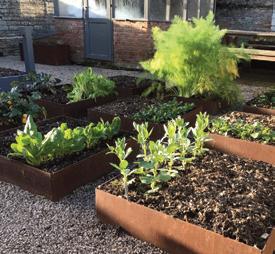
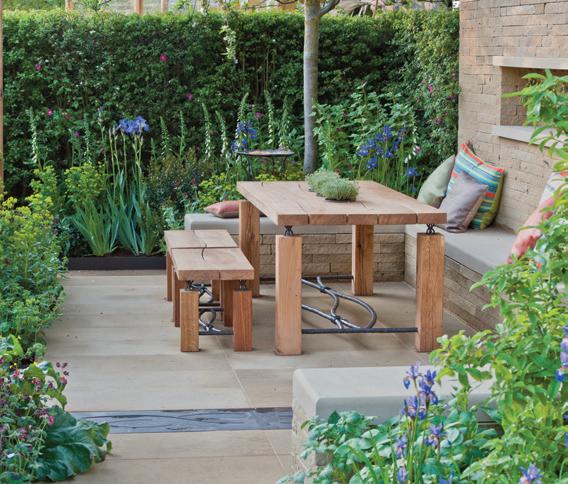
Right: Adam Frost first came to the area to work with Geoff Hamilton at Barnsdale Gardens. He moved to his current three acre garden near Barnack, Stamford, and has created a kitchen garden at its heart. It’s just one element that Adam uses for his garden design courses.

weeding all day, they give you a bit of a hand getting up!” “I’ve painted my raised beds grey, which ties them into the greenhouse and creates a nice finish. I’ve also got a table and benches next to the greenhouse. as it provides as useful place to work, as well as sit and enjoy the space.” “Just because it’s a working garden doesn’t mean it can’t be a beautiful space too!” Lastly, if you’re determined to maximise your available space and to yield as many crops as possible, or if you’d like to achieve the ultimate goal and become self-sufficient, professional advice is always available. Adam’s courses cover not just garden design, but planning and maximising your resources, from kitchen garden to orchard to every last pot and container. Small class numbers make each course a fun and interactive experience, with emphasis on spending as much time outside, as in the classroom. n
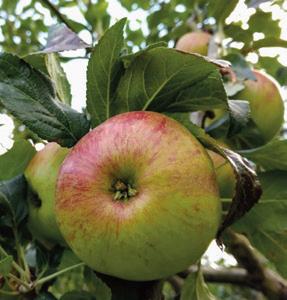
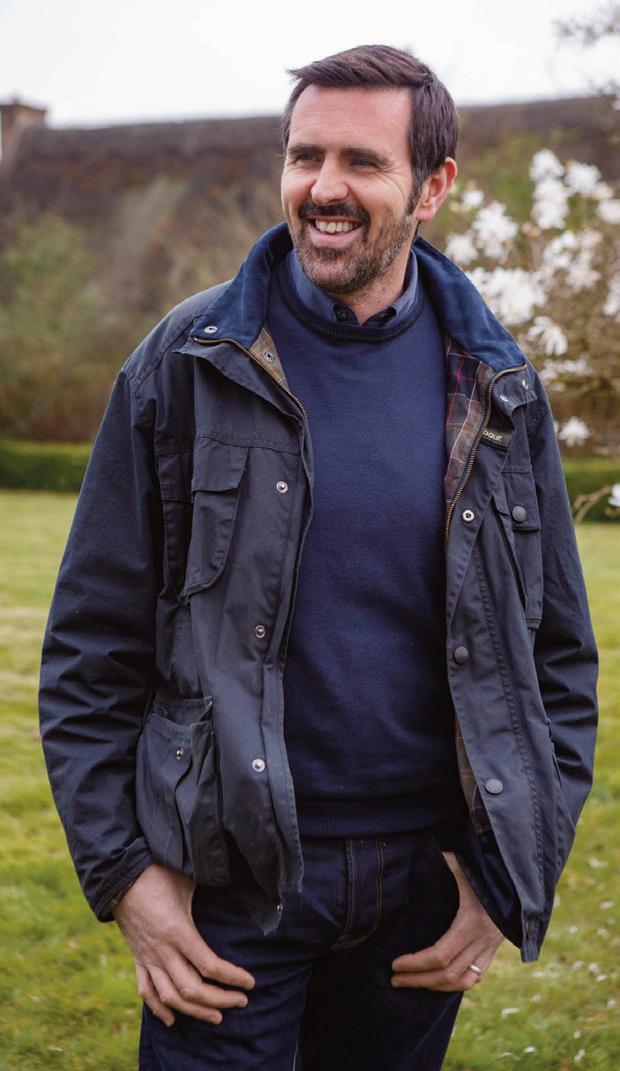
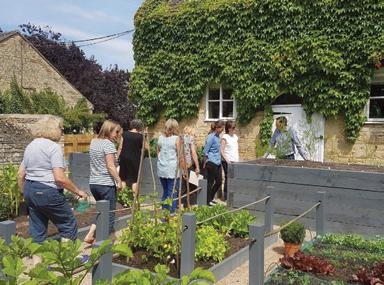
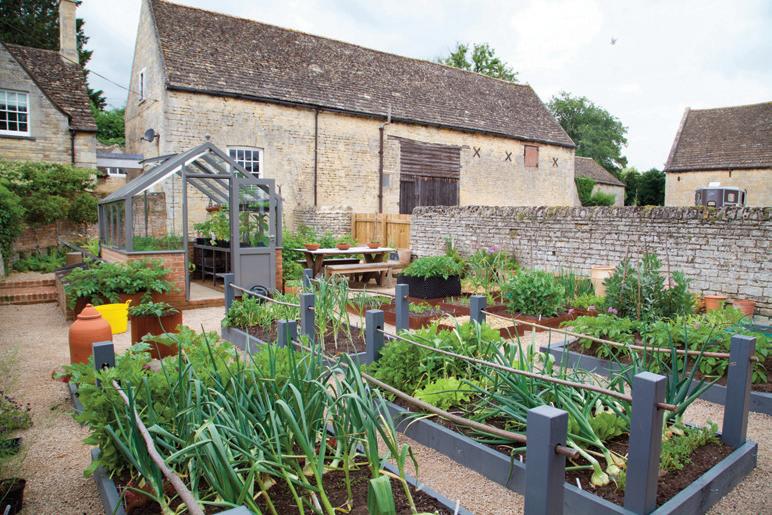
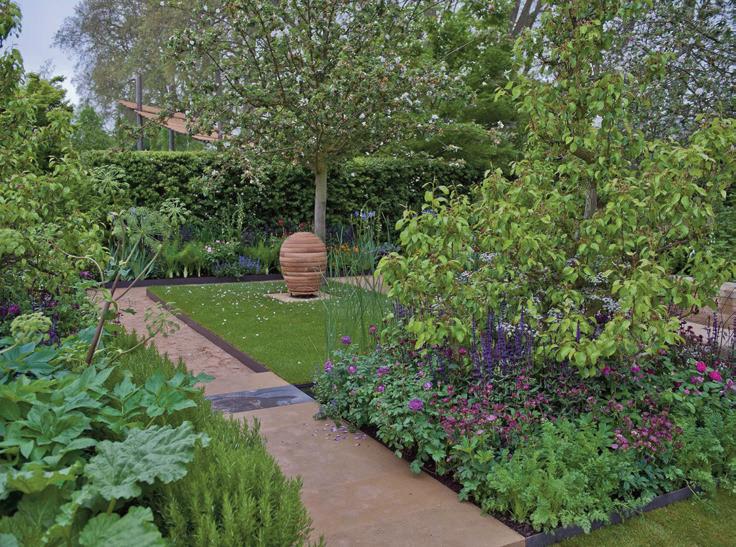
ADAM FROST’S GARDEN DESIGN COURSES
Who better than to teach you how to develop your garden than RHS ambassador and BBC TV presenter Adam Frost?
Throughout lockdown Adam has been hosting online courses, from his Introduction to Planting Design course and his How to Create Your Garden sessions. Back in summer 2021 are Adam’s full day courses from A Day in the Garden which offers seasonal advice on how to get the best from your plants, and his Garden Masterclass course in which he shares tips on how to design a garden and plant the perfect border. Adam also offers his Introduction to Garden Design and Introduction to Planting Design courses, his Introduction to Garden Drawing class and his Big Ideas for Small Gardens course. Adam is an RHS Ambassador for Education and Community Gardens, Co-Founder of the Homebase Garden Academy and a presenter on BBC television, including Gardeners’ World. He believes there’s inspiration all around us – in nature, architecture, art, people and food – we just have to take the time to stop and look around. He draws on memories, special places and people who have been influential to the way he designs. Adam cares that his garden designs are about creating personal spaces that people can feel comfortable in, places that actually feel ‘real,’ as well as being beautiful.
Adam Frost’s garden school is located only four miles from Stamford. All courses start at 10am and finish around 4.30pm. Online workshops £30, day courses £195/person, call 01780 740531 or see www.adamfrost.co.uk.


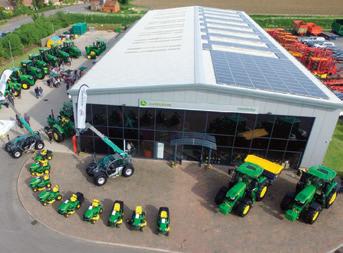

Work done well this summer thanks to Doubleday
What happens when you take farm-proven technology and quality, then distil it into a hard-working, long-lasting, easy to use product for your own garden? You end up with a machine that’ll serve you well for years to come. An investment in quality is one that Lincolnshire’s Doubleday knows will prove very wise indeed... and now the firm has a new model line-up of ride-on mowers from the brand.
A decision to make an investment in quality is never one that you’ll regret. Buy once, buy well; buy cheap, and you’ll by twice. Happily, though, for the quality of its products, groundcare brand John Deere is respected not only for the quality of its machinery, but for their good value in the market too. “It’s our halo brand for the farming industry, but also for home-owners, gardeners and those with larger estates too, says Paul Gregory, Group Parts Manager. “If we stand by the quality, reliability and engineering of John Deere for our farmers and landowners, why wouldn’t we also want those values to be present in the products we produce to consumers, too?” “The company provides everything from walk-behind mowers to a wide range of ride-on machines including the new models of the X100 range.” “John Deere’s newest X100 models are even stronger than ever, providing great quality, ergonomic features and the ability to power through your grass cutting chores this summer without breaking a sweat.” “Thanks to hydrostatic drive systems, their operation is easier than ever, and they’re a cinch to manoeuvre precisely around your garden.” “The three-in-one decks of many models mean that you can side discharge rough paddocks, mulch areas of lawn which require nutrients and also cut finer lawns cleanly, or collect clippings neatly and efficiently; a breeze with the optional easy-empty collection system.” “Their versatility is increased with implements like trailers, spreaders and de-thatchers which help to curate a beautiful lawn, and with an adjustable seat, lower than ever noise levels, cruise control and cup holders, they’re more ergonomic and better to use than ever.” “The X100 range’s reliability is underwritten by up to three years of warranty, and Doubleday offers free delivery and setup as well as aftersales support to ensure the value of your investment through the years.” “Quite aside from the quality of the products we choose to stock, and of John Deere as a brand, Doubleday was founded by a farming family in the early 1970s. That means we’ve nearly 50 years of experience in the field – metaphorically and literally – and understand the importance of keeping agricultural, groundcare and domestic customers happy.” “We’ve only been able to thrive and grow our business because we’re a company founded on looking after our customers, whether that means protecting their valuable crops and their investment in machinery, or ensuring peace of mind that our customers’ investment in their domestic equipment is has been a good one.” “There are a few constants in life; the sun will keep shining all summer long, the grass will keep growing, and we’ll ensure that you can enjoy your neat garden without spending all summer working in it. Our customers find that to be really reassuring and many wouldn’t purchase their new mower from anywhere else!” n
Find Out More: John Deere specialist Doubleday Group has depots in Swineshead, Old Leake, Holbeach and Kings Lynn, for a no-obligation demonstration and advice call 01205 822440 or see www.doubledaygroup.co.uk.
